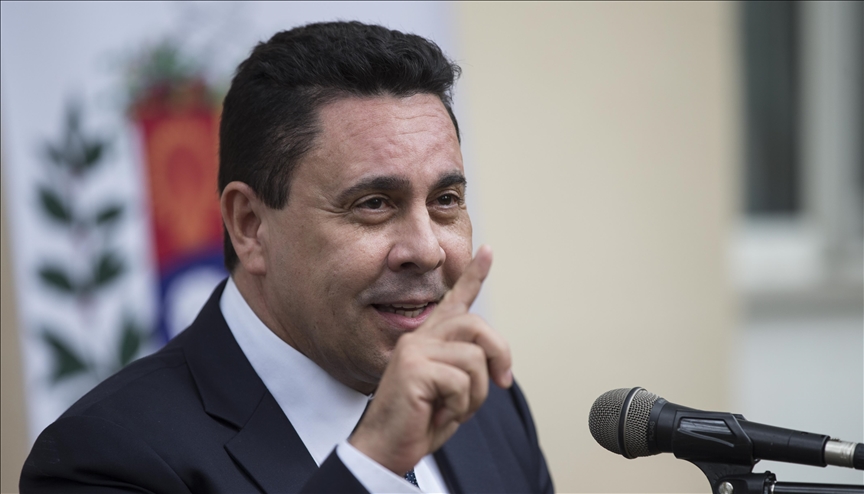CIA Report Draws Bleak Iraq Picture
The New York Times revealed Tuesday, December 7, a classified cable, sent last month by the Central Intelligence Agency (CIA) station chief in Baghdad after a one year-tour of duty assessment in the chaos-marred country, painting a bleak picture of Iraq’s politics, economics and security.
The cable cautioned that security in war-ravaged Iraq was likely to deteriorate unless the interim Iraqi government makes significant progress in asserting its authority and building up the economy, the US daily added.
“It’s an honest assessment of this officer’s opinion — and it is a well respected officer by the way — of conditions in Iraq at this time,” a US official told Agence France Presse (AFP), on condition of anonymity.
“It is a balanced picture, it talks about progress in some areas, and then challenges as well,” the official said.
The tone of the CIA report appeared much more pessimistic than public statements in recent days by Bush administration officials, claiming that the Iraqi general elections, slated late January, would offer better opportunities for establishing security and stability in the country.
UN Iraqi envoy Lakhdar Brahimi has warned the general elections, slated for January 30, could not be held “unless first and foremost security improves”.
Up to 70 Iraqi religious and political groups have threatened to boycott the vote, charging that any poll should only be held after the withdrawal of foreign troops, and to protest onslaughts on Sunni cities.
Mixed Picture
Commenting on the NY Times report, US officials told Reuters that the CIA report emphasized that Iraq offered a mixed picture.
One official said the “general thrust” of the article appeared to be broadly on the mark.
“These things present a picture of Iraq that’s mixed. There’s good, there’s less good and the point is to try to improve on those areas where the performance has been less than optimal,”’ he said.
A senior US official insisted that the basic task of building Iraq civil and military services was being carried out.
“Where there are problems you try to fix them and that’s where our focus is. But the overall trend in terms of building more robust Iraqi security forces and more robust government institutions that will be the foundation for a democratic Iraq are going in the right direction,”’ he said.
Iraq has been hit by a series of bomb attacks and car blasts, leaving scores of Iraqis killed.
Some 41 Iraqi were killed Sunday in attacks in Tikrit, Mosul and Baghdad, a day after twenty six people were killed in two separate attacks against police stations in the Iraqi capital.
Some 134 US soldiers were killed in November, one less than the most deadly month yet of April this year, according to an AFP tally.
The US Defense Department said 1,000 US military personnel have been killed in action in Iraq since the US-led invasion of the country in March 2003.
Complex Situation
The Bush administration, however, claimed that it is not trying to minimize the seriousness of the Iraqi insurgency (the US term of the Iraqi resistance).
The State Department said the “insurgent” attacks in Iraq, which have claimed the lives of scores of members of Iraq’s fledgling security forces in recent days, are only one part of a complex situation in the country, the Voice of America reported.
“We’ve always been very clear-eyed and realistic about the challenges before us in Iraq,” the US State Department Deputy spokesman Adam Ereli said.
“Nobody’s trying to sugar-coat anything. We recognize that we’ve got a tenacious and difficult insurgency to deal with. I think we have a good understanding of what we’re confronting. We have, together with the Iraqi interim government, a plan for dealing with it.”
The spokesman said assessments like the reported CIA document are important to having a complete understanding of what is going on in Iraq, but said they are only part of a very nuanced and complicated picture of the country.
The spokesman alleged that the US strategy in Iraq has been reflected in recent weeks in cities like Najaf and Fallujah, where the US-led coalition and Iraqi government troops have used military force and political pressure to take the fight to the enemy.
Some 10,000 US marines and army forces, alongside some 2,000 Iraqi national guardsmen unleashed a long-expected onslaught on the resistance hub of Fallujah November 8, capping long nights of massive US raids.
The successive air strikes have caused huge damage in the western Baghdad city, with dead bodies littering the streets.
About 80-to-90 percent of Fallujah’s 300,000-strong population are said to have evacuated the city, escaping the hell of continuous US air raids.



